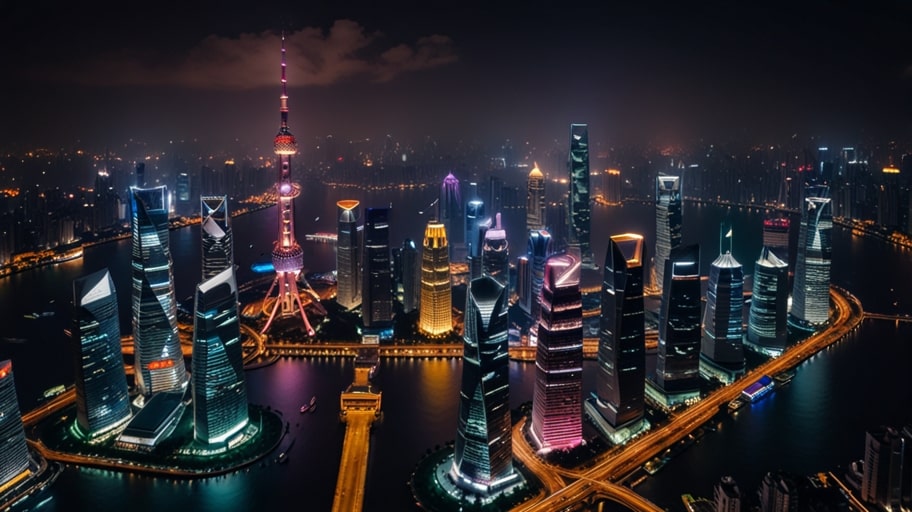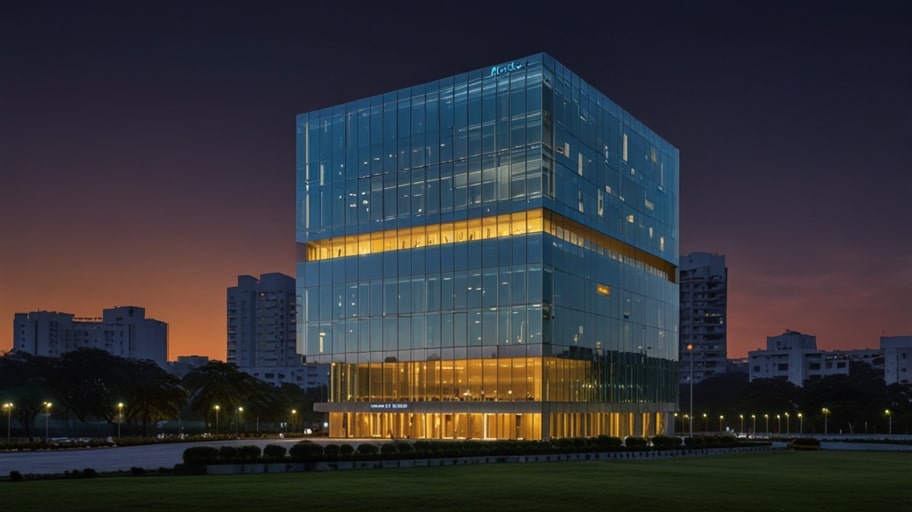In a lively tech district in Shanghai, a German chemical giant company has brought in $500 million in capital and founded a new electric vehicle materials factory, thereby demonstrating the extent of the trust in China’s electric vehicle market. The plant seeks to create innovative battery parts to match the demand for green transportation that has been growing wildly.
This action confirms the importance of Asia in the global transition to clean energy in spite of the tension going on globally. The local administration has given their full support to the project, which they think will create jobs and develop the economy.
On the one hand, a Japanese electronics, and one of the giants in the industry has put into operation a new sort of battery in Wuxi, and it is targeted at the same electric vehicle trend. The company’s move, coinciding with the huge increase in foreign direct investment in China, to 13 percent, clearly shows that the country remains an attraction to the outside world.
The fact that the company has changed its business focus to green energy is a part of the trend that many international companies are following, which is adapting to the eco-conscious consumer demand. The company plans to start with mass production and then grow quickly to fulfill both local and global supply orders.
Other enterprises, by contrast, seem to find the going tough. All the ventures conducted by the U.S. global software firm in China have laid off low-performing staff, therefore, sending a more stringent management message. The exercise, of which the China branch of the company is part as well, is set to slim it down to enhance productivity.
On the other side, critics have concerns about a turn-off of the talent in a fierce market that has a high demand for skills, and as a consequence, that the content may spill over to employee retention. The move has also led to discussions on how performance and employee retention can be reconciled with each other.
An influential fintech company in Beijing has revealed a plan to sell a large share in a foreign payment platform for more than $ 240 M. This step represents a strategic drawdown from the foreign markets in view of the regulatory pressure at home. The investors are paying thorough attention to the deal, which might turn the company’s global business footprint upside down. Consequently, the company is anticipated to put more emphasis on the domestic market by selling a stake to further local innovation and compliance.
In the Western part of the world, a well-known cosmetics brand of Brazil stated that it nearly wiped out its losses in the quarter by 84% as a result of the good performance of the brand in Latin America. The sales on Chinese e-platforms have not only driven the company’s expansion but also opened new horizons for the Chinese market.
In joining the digital route, the makers of the products have followed the trend in the world of retail towards e-commerce, with Asia being a very important sector. Expectancies of an upwards movement are there from analysts as the brand raises the bar in ameliorating its marketing strategies.
One of the major concerns coming from trade tensions in the U.S. is the necessity to re-examine the means of investment. The report brought out by the recent survey showed that the executives from oil-based industries were worried about a lack of predictability in the area of policy changes, especially the issue of tariffs.
This unclear political environment triggered companies to switch to different supply chains, with China still remaining the vital spot on the globe. The indirect outcomes of changes in trade are noticed in Shanghai, where logistics stations adjust to the new rules. The businesses are getting prepared for the potential disturbances that might occur while negotiating stable partnerships elsewhere.
A parent company that has control and owns the airlines has shown almost a threefold increase in the first quarter of the year’s earnings, the success of which can be attributed to people’s persistence in traveling during the pandemic. Notably, Asia is a region characterized by very strong demand, and they have a pronounced rebound that no one can ignore when the pandemic ends.
The company is therefore pinning high hopes for the year 2025 on growth in passenger traffic within its primary markets. Moreover, the company’s choice of eco-friendly models in aircraft, apart from everything else, is also the source of its increased competitiveness and distinctly resonates with the overall sustainable goals.
In Shenzhen, a startup that creates AI semiconductors is on the brink of securing a major round of funding, positioning itself as the main rival to the big companies in the field. The company’s new semiconductor architecture, which is truly innovative, is a lot faster in the execution of AI tasks such as driving autonomous vehicles and building smart cities.
The company has enabled China to attract global venture capital by offering generous help to tech startups and thus has become one of the fastest-growing areas in the world. The company’s prosperity may reshape the semiconductor industry, which has long been dominated by major players.
The electric vehicle industry is also hit by problems. With fresh restrictions on AI chip exports from the U.S. almost ready to be put in place, there are lots of burning questions among the nervous Chinese tech companies. Limited availability of advanced graphics processing units may bring the critical AI for autonomous driving to a halt. Many companies are fighting to secure an alternative source of supply, but the fact is that the supply chain is still dysfunctional. This saturation could endanger the production of upcoming car models as well.
In Hong Kong, a luxury retail company has started to make the most of the rich Chinese consumers to balance the negative influences of the world economy. The company’s first wholesale has described the highest sales quantity, which was driven by the massive demand for their high-end products.
The company’s design of the shopping experience that fuses digital and physical retail, while being a hit with young customers, is also the source of its success. Future stores are planned in the lower-tiered cities in China, which are believed to be riding on rising income levels.
Even if these positive aspects exist, hindrances in regulation still perturb the companies. The most recent instance of the crackdown on data privacy in China has left many companies worldwide with no other choice but to switch to a completely new operational pattern. Compliance costs are increasing, which is more so for cloud service providers that are dependent on cross-border data flows.
Many firms are making the tough and costly decision to migrate data centers to other places, but the possibility of remaining in operation is nil. The variation in regulatory conditions is still a factor to consider when planning long-term business strategies.
China’s economy is now experiencing quite a few twists and turns. Foreign companies are resorting to innovation to a greater extent to prevail over the competition. From batteries to AI chips, market situation in these sectors is very tense.
The coexistence of opportunity and unavoidable risk is what brings the improvement of technology to the market. Large international corporations are cautiously planning their next steps. Shanghai, Wuxi, and Shenzhen are the most important centers for preliminary research and technological advancements in China’s technology and trade sectors.




